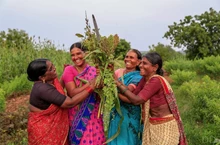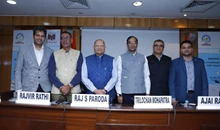
Kenya has taken an important step toward international marketing of its agricultural products by becoming the first African country to introduce and adopt electronic phytosanitary certification (ephyto), which is expected to improve the quality of trade with the European market as part of the ongoing agriculture digitalization programme.
Phytosanitary certificates (ePhytos) are official documents issued by governments confirming that shipments of plants and plant products traded internationally are pest and disease free and, thus, safe to import. Until recently, these certificates were always physical paper documents sent between parties via mail, courier, or other physical means. The ePhyto Solution enables countries to electronically exchange ePhytos with one another via a central hub in a timely, accurate, and low-cost manner.
The risk of certificate loss, damage, or fraud is significantly reduced, as is the administrative burden on border agencies and businesses. The IPPC Secretariat created the e-solution with the United Nations International Computing Centre (UN ICC) to bring phytosanitary certification into the digital age. The Standards and Trade Development Facility initiated and co-financed the project (STDF).
During the E-certification milestone celebrations, Kellow Harsama, Principal Secretary of State Department for Crop and Development in the Ministry of Agriculture and Livestock, expressed optimism that the shift would help shape a more inclusive digital transformation in all agricultural and trade business processes. "It is time to ensure that the future of innovation contributes to achieving the SDGs," he said. "Let us work together to embrace a win-win future," the PS said during the celebrations marking Kenya and the Netherlands' cooperation on the Electronic Certification milestone.
Harsama added that the creation of the International Plant Protection Convention (IPPC) ePhyto Hub, which serves as a platform for the exchange of ePhyto among trading partners and where over 70 countries have successfully implemented paperless certification, is a significant milestone for the country.
Prof. Theophilus Mutui, Managing Director of the Kenya Plant Health Inspectorate Service (KEPHIS), stated that Kenya has worked with the Netherlands to automate its processes for over a decade. Prof. Mutui stated that to meet high customer expectations, KEPHIS has accelerated the digitization of its business processes, which goes beyond simply automating existing processes and includes developing automated decision-making and dealing with regulatory and fraud issues.
The Netherlands' Patricia de Vries - van Loon, Chief Phytosanitary Officer, Ministry of Agriculture, Nature, and Food Quality, stated that her country was eager to expand the Ephyto concept beyond Kenya as the starting point. She stated that going paperless will facilitate a more efficient trade of fresh produce between our two countries by improving the efficiency of imports and exports while saving time and valuable resources.











